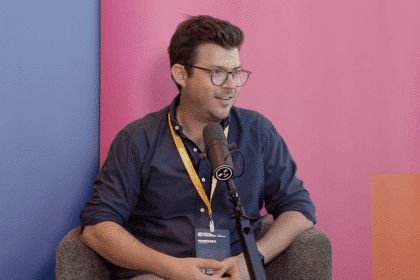Historically, Australia hasn’t been known for its tech start-ups. Despite the success of some outliers —Airwallex, Canva, Atlassian and Afterpay, to name a few—we’ve not been regarded as an entrepreneurial, Silicon Valley-style paradise.
Five years ago, many of our best and brightest were moving to California, especially the Bay Area, where the seed money flowed like wine, and you could spark connections on every street corner.
There were a few reasons for this. Distance was a big one. In a globally connected, online world, time zones still existed. Networking with people in America and Europe was a constant challenge, and face-to-face meetings were both costly and, to be frank, a bit of a pain.
Australia is also battling a significant digital skills gap. RMIT Online’s recent Ready, Set, Upskill report found the country needs an additional 156,000 new technology workers by 2025, with potentially $10 billion worth of growth at stake in the Technology, Media and Communications industry alone. About 87 per cent of all jobs now require digital skills, but without skilled graduates (and tech-focussed curriculums, like those offered by RMIT Online) our pipeline of talent could well fall short. Over 50,000 Australians already reported a ‘lack of skills’ as the main barrier to finding work in 2020.
Then there’s the culture. As Audrey Melnik wrote back in 2016, although Australians and Americans speak the same language, we’re wired quite differently. When Melnik flew to San Francisco, she realised Australians “Tend to underplay our achievements. We hold our connections tight to our chest, instead of openly offering them to others. We operate with distrust as our default position, and we’re much more focussed on having a great lifestyle than being successful.”
While there may be some sweeping generalisations, other commentators have identified a similar problem. “The business culture in Australia is ripe for change. There’s a strong sense of national humility, with displays of success sometimes met with unpleasant hostility,” said Zack Weisfeld, GM of Ignite, Intel’s global start-up program.
“The Australian start-up community is working together to counteract this syndrome by creating a culture of shared success.”
For all the talk of cut-throat American investment, the U.S. has somehow managed to foster a genuine start-up community that values collaboration, ambition and knowledge-sharing. Systemic cultural change can take a long time to eventuate, but Australia is making progress here.
With the recent success of homegrown startup unicorns; Airwallex, Afterpay, Atlassian and Canva (even SafetyCulture was valued at $1.3 billion in 2020), Australia is slowly making a name for itself on the global start-up stage, and as Airwallex VP, Global Head of Platform Craig Rees points out, “success breeds success.”
“I think Australia is really making a name for itself within the global start-up sector,” he says. “The more successful exports we have in Australia, the more experienced talent will be available in the market. As a result, talent will have a higher tolerance to risk.”
This is something Weisfeld touches on. Australian VCs have traditionally been rather risk averse, especially compared to their Silicon Valley counterparts. “Which is problematic,” Wiesfeld notes, “since VCs are supposed to be in the business of supporting high risk.” Risk aversion has stunted local industry growth over the last ten years or so. Lack of investment—both from government initiatives and VCs—is a measurement of confidence, and low confidence prompts weak investment, and round and round we go, until Australia finds itself in the odd position of having some of the world’s biggest super funds, but also the lowest venture capital investment (in 2017, Australian funds invested just 0.011 per cent in local start-ups, compared to 2 per cent for pension funds in the US).
This tide is gradually beginning to turn. “Having globally recognised names also helps to create more opportunities for early stage investment—whether this be funding, policy or talent related,” says Rees. “As part of the recent Victorian state government’s budget, for example, our start-up agency, LaunchVic, has been given an additional $40 million to boost growth in the start-up ecosystem.”
LaunchVic is a strong example of governments joining the rise of start-up culture. Along with an additional $40 million investment, the Victorian government also launched the Victorian Capital Start-Up Fund, pumping $60.5 million into a so-called “fund of funds” to match private sector investors, including super funds and high-net-worth individuals. Then there’s the $10 million Women’s Angel Sidecar fund, which will offer $250,000 in co-investments specifically for women-led start-ups.
Rees says these signs are encouraging, and although it’s taken a while for Australia’s start-up culture to be taken seriously, the future is looking bright. “I believe innovation within the start-up sector has only just begun. Operating across global markets will become commonplace as technology breaks down barriers. In the coming years, we’ll see more start-ups launching in Australia and using the global economy as a springboard for success. It’s up to Aussie entrepreneurs to constantly engage with their customers—what they need today might change tomorrow.”
Want to pick up business and technology skills in as little as six weeks? Check out RMIT Online’s range of industry-built courses here.








